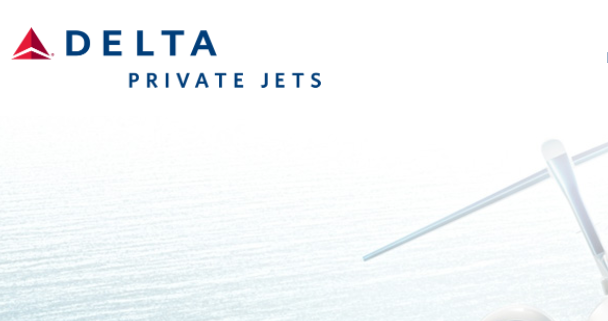
David Sneed, the hard-charging President and COO of Delta Private Jets (DPJ), left the subsidiary of Delta Air Lines, Inc. several weeks ago. While officials from DPJ didn’t respond to a request for comment, Private Jet Card Comparisons understands a new leader will be announced in the next couple weeks. Sneed’s profile is no longer on the DPJ website.
Sneed is an active Boeing 767 pilot with the mainline airline. He started as a pilot, and after being furloughed went into private business before entering a Delta management training program and joining its executive ranks from where he was picked to lead DPJ. While in management he was recalled to active duty as a pilot. It is believed he could be returning to the parent company in an yet to be determined position.
Under Sneed, Delta Private Jets closely aligned its positioning with the mainline airline. It became the official private jet provider for American Express, a key partnership for the airline. DPJ also for the first time allowed participants in Delta’s SkyMiles frequent-flier program to redeem miles for jet cards. Members of the American Express Membership Rewards program can transfer their points to SkyMiles. Business owners who use their American Express Platinum and Centurion cards to pay business expenses are known to earn millions of points annually.
In another move pulling it closer to Delta, DPJ extended the airline’s partnership with Porsche offering its customers connecting to and from Delta flights transfers between the FBO and commercial terminal in luxury vehicles supplied by the German carmaker. Sneed’s vision was to leverage the airline’s sales team and its strong relationships with corporate accounts while providing DPJ’s Ultra High Net Worth clients a seamless experience when traveling on Delta. Some 80% of private jet flights are thought to be under two hours, and many private jet users fly commercially on long-haul international flights where only the largest and most expensive private jets have the range to fly nonstop.
The jet card seller, which manages aircraft for owners, also initiated an innovative program where it co-funded refurbishments with owners, updating its fleet with WiFi and giving a fresh look to older planes. Owners are typically expected to pay for improvements to the planes they own.
As previously reported by Private Jet Card Comparisons, Delta Private Jets is expected to announce a refresh of its program later this year. Despite Sneed leaving, Delta is apparently fully committed to the private jet segment of its business. Commercial airlines have long dallied with private aviation. Dassault Falcon Jet was launched in 1972 in conjunction with Pan Am to help the French manufacturer increase its presence in the U.S. market. AMR Corp., then parent entity of American Airlines, owned an FBO network until selling it in 1998. United Airlines announced and then shelved Avolar, an entry into the private jet market in 2001. Recently, JetBlue announced it was investing in JetSuite where it already has a marketing partnership.
In foreign skies, there are a number of well-known commercial airlines that have subsidiary or sister companies that either operate or market private jet flights, including Saudia, Qatar Airways, Emirates, Lufthansa, and Korean Air. China’s Hainan Airlines is owned by the same holding company that owns Deer Jet, the largest private jet operator in that country.